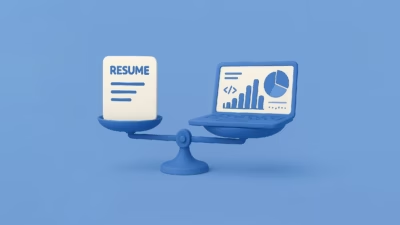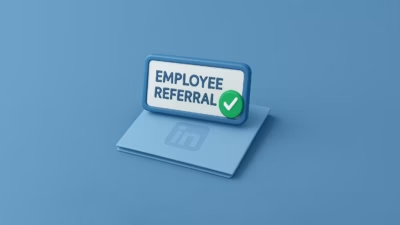So, you wanna be a data analyst?
You’ve been poking around job boards, maybe binge-watching a few YouTube crash courses, and now your brain’s swirling with talk of “SQL joins,” “Python scripts,” and “business insights.” It all sounds powerful—maybe even exciting—but also a little overwhelming. You’re thinking, Alright, this could be my lane… if I can just figure out how to get started.
But here’s the truth bomb: breaking into data analytics can feel like trying to jump onto a moving train. Every job description wants “2+ years experience,” but how do you get experience if you can’t get hired? Oh, and remote work? Great in theory, but in practice, it’s like being the new kid at school—with your camera off and no one saying hi.
Let’s change that.
Let’s map out the roles that actually welcome beginners and build a strategy to land one—especially if your plan involves working remotely (and maybe in sweatpants—no judgment).
The Real Entry Point: What “Entry-Level” Actually Looks Like
Let’s set expectations straight. When companies say “entry-level,” they don’t always mean zero experience. Often, they’re hoping for candidates who’ve done something—a project, a certification, an internship, a freelance gig. Doesn’t have to be glamorous. Just real.
So what kinds of roles actually give you a foot in the door?
1. Data Analyst Internships and Apprenticeships
Don’t scroll past just because you’re out of school. Many startups and nonprofits are open to adult interns or part-time analysts if you pitch the right value. Think of this like the paid rehearsal before the big show.
Tl;dr: An internship can be your ticket to experience without needing to pretend you’re an expert already.
2. Junior Data Analyst / Reporting Analyst
Think of these roles as the gateway into the data world. You’ll spend most of your time wrangling spreadsheets, cleaning messy data, building dashboards, and writing SQL queries to answer questions like “What happened last quarter?” or “How are we trending this month?”
Tl;dr: Look for jobs where Excel and SQL are king. Python might be optional at this stage.
3. Operations Analyst / Business Intelligence Assistant
Companies might call it “operations” or “BI,” but the work overlaps with entry-level data analytics. If you’re turning data into reports, measuring KPIs, or poking around in databases? You’re doing the job, even if the title sounds vague.
Tl;dr: Don’t get too hung up on job titles—read the descriptions and spot the hidden analyst roles.
What Hiring Managers Actually Look For (That You Can Build from Home)
Here’s something most beginners don’t hear: you don’t need to be a data analyst to think like one.
Remote or not, these three skills will move the needle:
SQL Skills You Can Prove
You’d be surprised how many “analysts” don’t know how to write a JOIN. If you can pull data from multiple tables and filter results with confidence, you’re ahead of the pack.
How to build it:
Use sites like Mode, LeetCode (SQL section), or Stratascratch to practice real-world queries. Bonus points if you share your answers on LinkedIn or GitHub.
“Stuck on a query? Learn how to debug SQL with ChatGPT ethically.“
Pro Tip: I once got messaged by a recruiter just because I posted a SQL walkthrough for a Netflix dataset. It wasn’t perfect. But it was visible.
Data Cleaning in Python or Excel
No joke—80% of the work is cleaning messy spreadsheets. Dates that don’t match. Text fields with typos. Null values that haunt your dreams.
How to build it:
Grab a dataset from Kaggle, open it in pandas (or Excel), and try to fix it. Then visualize what you cleaned. That’s a story. That’s a portfolio piece.
Need datasets? Here’s where to find free, high-quality data.
Telling a Story with Data
You’re not just making charts. You’re guiding a decision.
How to build it:
Create a dashboard in Power BI, Tableau, or even Google Looker Studio. Ask a business-style question like “Which product line is underperforming?” and answer it with charts and a short write-up.
Tl;dr: You don’t need a job to act like a data analyst. Start doing the work. Share what you make.
Working Remote: The Data Analyst Playbook
Now, let’s talk about the elephant in the Zoom room: Can you really start your data career remotely?
Short answer: yes—but not by applying like everyone else.
Here’s the playbook:
Build in Public
Post your projects on LinkedIn or Medium. Not sure what to say? Try:
- “I built a dashboard that visualizes Starbucks store locations. Here’s what I learned.”
- “This SQL problem stumped me. Here’s how I finally solved it.”
You don’t need a thousand likes. You just need the right person to notice. I once landed a contract gig from a Medium article I wrote in my pajamas.
Network the Right Way (Not the Cringe Way)
Skip the cold “Can I pick your brain?” DMs. Instead, try:
- Commenting on other analysts’ posts with thoughtful insights.
- Sharing someone else’s work and adding your take.
- Attending virtual meetups or data hackathons (yes, they exist!).
People remember helpful, curious folks. Not beggars. Not bots.
Freelance to Learn (and Earn)
Remote freelance gigs are real—and platforms like Upwork or Contra do have openings for SQL reporting, dashboard fixes, and data cleaning.
Just… brace yourself. The early gigs may pay like pocket change. But the review you earn? That’s your passport.
Quick hack: Offer your skills to a local small business or nonprofit for free in exchange for a testimonial. Then list it like a job on your resume. Because it was.
Tl;dr: Remote beginners need to do more than apply. You need to appear in the wild with proof you can do the job. Not sure where to start? Here’s a beginner’s guide to becoming a freelance data scientist that walks you through it.
How to Make Your Resume Not Suck (Even With No Experience)
Ah, the resume. That lonely Google Doc begging for some love. Here’s how to fake nothing—but frame everything.
Project-Based Experience Is Real Experience
If you scraped IMDb ratings and visualized trends, that’s a project. If you cleaned HR data in Excel and found hiring gaps, that’s impact. Just frame it like this:
Freelance Data Analyst
Self-initiated project | Remote | Jan 2025 – Mar 2025
Cleaned and analyzed 10k+ rows of e-commerce data using Python and SQL. Built interactive dashboards with Power BI to highlight sales trends and optimize inventory strategy.
Looks a lot better than “Learning Python on YouTube,” right?
Keywords Are the Game
Most resumes are scanned by software. If the job description says “SQL, Power BI, Excel,” make sure those exact words appear in your resume—ideally in context.
Don’t lie. Just mirror their language.
Tl;dr: Treat your resume like a highlight reel, not a diary. Show what you can do, not just what you’ve watched.
Where to Actually Find Entry-Level Data Analyst Jobs (Yes, Remote Ones Too)
Forget refreshing Indeed every 20 minutes. Try these better bets:
- LinkedIn Jobs – but sort by “Internship” or “Entry Level,” and follow smaller companies. Big corps ghost hard.
- AngelList (now Wellfound) – goldmine for startups who care more about hustle than perfect resumes.
- Remote OK, We Work Remotely, Otta – actual filters for data + remote + junior.
- GitHub Jobs, Kaggle forums, and Subreddits like r/dataisbeautiful and r/datasciencejobs often share gigs under the radar.
Also? Keep your eyes peeled for roles like:
- Data Coordinator
- Analytics Assistant
- Junior Business Analyst
- Research Assistant with data skills
- Data Support Specialist
Tl;dr: Cast a wide net, and don’t let job titles fool you. It’s about the work, not the label.
Final Pep Talk: You’re Closer Than You Think
Here’s the part no one says out loud: you don’t need permission to start.
You don’t need a CS degree. Or a job offer. Or to finish every Udemy course you bought on sale.
You just need to:
- Pick a project.
- Build something real.
- Share it publicly.
- Keep showing up.
Most people won’t do that. If you do, you will stand out.
And hey, if you’re reading this while toggling between job apps and a lukewarm coffee? You’re already doing the work. Keep going.
Your Quick Action Plan (Because You Scrolled Here, Didn’t You?):
- Learn: Get comfy with SQL(30-day SQL plan) + Excel. Add Python when ready.
- Do: Pick one real-world project. Clean, analyze, share.
- Show: Build a portfolio or just post on LinkedIn.
- Apply smart: Focus on startups, remote-friendly roles, and titles beyond “data analyst.”
- Repeat: Each project makes you stronger. Each share makes you visible.
Let’s get you hired. Sweatpants optional.





